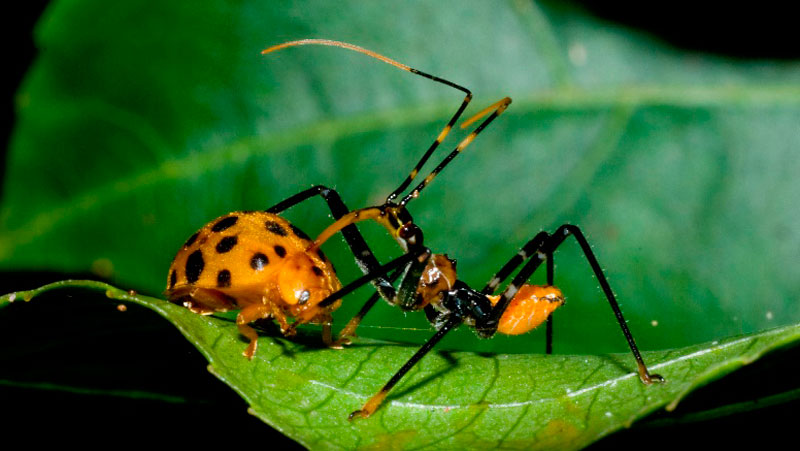The Australian Lychee Growers Association (ALGA) as the Peak Industry Body (PIB) works with Horticulture Innovation, the Australian Department of Agriculture, Growcom, Plant Health Australia and a range of other Australian and State Government departments in deciding industry Research & Development priorities and implementing them.
The Australian lychee industry is focused on a whole of supply chain approach that takes into account production, harvesting, postharvest management and marketing.
Relationships are an essential part of successful supply chains and ALGA maintains relations with growers, marketing groups, wholesale domestic and export agents, import agents, retailers and researchers in an effort to continue to improve retail outcomes for lychee.
Biosecurity
Australia’s geographic isolation and lack of shared land border have, in the past, provided a degree of natural protection from exotic threats. Australia’s national quarantine system also helps to prevent the introduction of harmful exotic threats to plant industry.
Rapid increases in overseas tourism, imports and exports, mail and changing transport procedures as well as the potential for pests to enter via natural routes increases the risk of exotic pests entering Australia.
It is vital for the future sustainability and viability of the lychee industry to minimise the risks posed by exotic pests by responding to them effectively. Through biosecurity awareness, planning and practices, the industry will be better placed to maintain domestic and international trade, negotiate access to new overseas markets, and reduce the social and economic costs of pest incursions on both growers and the wide community.
The lychee industry has a strong domestic and export presence and will continue to seek and develop new markets ensuring any pest incursions are undertaken as effectively as possible to minimise costs to growers, the industry, other plant industries, government parties and the wider community.
As members of Plant Health Australia and signatories to the Emergency Plant Pest Response Deed, ALGA’s responsibilities include:
• Biosecurity planning and implementation at the national and farm levels
• Liaising with federal and state governments on trade issues
• Funding and supporting biosecurity initiatives
• Participation in national committees and response efforts in an emergency
Nutrition and water
Balanced plant nutrition is one of the vital components of achieving good yields, as both deficiency and excess of nutrients can adversely affect fruit yield and quality. Many lychee farms now use fertigation - the application of fertiliser through the irrigation water.
Integrated Pest Management
The Australian lychee industry utilisers a variety of techniques to manage pests and diseases including the use of biological controls, softer narrow spectrum insecticides and non-chemical methods.
Consumers are increasingly valuing the idea of clean and green produce and biological control options have an important part to play in managing pests.
Biological Pest Control
Biological pest control is a method of controlling pests such as insects, mites, weeds and plant diseases using other organisms.
Non-chemical methods
Growers are utilising a range of other non-chemical deterrent methods to deal with birds and flying foxes. Orchard netting provides a physical barrier between pest and the crop, giving a high level of protection that is safe, clean and green and reliable from season to season.
Harvesting
Australian lychees are harvested at the right time when the fruit on a panicle is sweet, fully coloured and good size, as they do not sweeten after picking so they must be ripe when harvested.
The season commences in northern Queensland in late October with early cropping varieties followed by all other varieties as the season extends down the eastern coastline and finishes in northern New South Wales in late March.
Harvesting commences as early as practical in the morning when fruit is cool and fully hydrated. Harvesting ceases before the fruit starts to heat up, lose hydration and soften.
Lychee production is highly labour intensive and requires careful management with close attention to detail to be grown successfully. Yields are also very sensitive to weather conditions (which can’t be controlled), and this yield variability must be considered along with a range of business, crop management and marketing issues.
Packing
There are a variety of procedures used by growers. The general procedure is to keep the fruit cool and moist by removing field heat as soon as it enters the packhouse or shed. If the fruit are not picked individually in the field, then they will need to be de-stalked from the panicles ready for grading and packing. Australian lychees are marketed as “home grown” and “fresh is best” with shipments sent by road transport and air freight with the cool chain integrity maintained from orchard to consumer.
Quality assurance
Industry quality control standards have been developed for lychees with the industry’s Grading Guide Chart used by all growers.
Export quality fruit must have minimal defects, good size, good colour and excellent flavour. First or premium grade fruit can only be exported and may have a small number of minor defects, however, the fruit must be ripe, ready for eating with a very good taste.
Domestic Markets
Approximately 75% of annual production is consumed domestically and sold primarily in the major fruit & vegetable markets in Brisbane, Sydney and Melbourne with small but strong demand in Perth. Adelaide market is small, and as with Perth, requires ICA13 (unbroken skin pre harvest) protocol.
Australian lychees have a reputation for being fresh and sweet, however, careful presentation and shelf management by retailers is required to ensure that the consumer is presented with top quality produce.
Export Markets
The Australian lychee industry has been exporting to overseas destinations for more than 25 years. Many of these destinations are non-quarantine countries which enables all growers with good pre and post-harvest quality control and industry standard requirements to export their produce e.g. Hong Kong, Singapore, Malaysia, Europe, Middle East, UK and Canada.
Countries requiring phytosanitary certification which Australian lychee have gained market access into include New Zealand, United States of America (excluding the state of Florida) and Indonesia.

